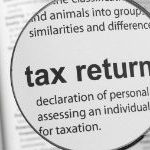Both established businesspeople and owners of new startups can have misconceptions about tax forms and what can and can’t be claimed as tax deductions. So, check out the following common misconceptions about tax forms so you can ensure you handle your taxes correctly.

Misconception 1: You Don’t Have to Pay Taxes If You Don’t Receive a 1099 Form
Form 1099 is used to report various types of income to the IRS. But many freelancers and contractors mistakenly believe they only have to fill in the form and report their income to the IRS if they are sent a 1099 form. That’s simply not true. Whether you receive a 1099 or not, your income from the year is taxable. You can report cash without a 1099 for your tax year, and you can make the process easier by using technology for form applications that can prevent you from making careless mistakes. So, it is best to track your income throughout the year with reliable digital forms instead of relying on 1099s to report your end-of-year income.
Misconception 2: Tax Deductions Aren’t Available to Part-time Freelancers
Some people think tracking tax-deductible expenses doesn’t matter if you’re only freelancing part-time. But the truth is the standard tax deduction does not trade off with itemizing 1099 business expenses. You can actually claim both. So, if you have a full-time job in which you complete a W2 form and also do limited part-time freelancing work, don’t forget to claim those work expenses when filling out your tax return.
Misconception 3: You Must Hold on to All of Your Paper Receipts
A common misconception that business owners have about tax forms is thinking they need to keep hold of every receipt throughout the year to attach to their IRS tax returns. While it is true that you need some receipts to claim tax deductions, they no longer have to be in paper format. Generally, the IRS considers bank and credit card statements to be sufficient records for the majority of tax-deductible expenses. In fact, the only time you need to keep receipts is when you purchase items over $75 with cash. So, don’t worry about having to hoard all those receipts, as all key transactions will already be recorded digitally.
Misconception 4: Vehicles with Advertising Are Tax-deductible
Your tax form will have a section for vehicle expenses. But too many businesspeople believe vehicles that contain external advertising are tax-deductible when that isn’t quite true. The vehicle itself is not tax-deductible, but you can deduct the entire expense of the wrap or decal as an advertising cost. You can also claim tax deductions on mileage. So, keep a log of the miles you drive for business purposes. You will then have all the information you need to input the data on your tax return and receive deductions.
Misconception 5: It’s Difficult to Claim a Home Office as a Tax Write Off
A little while ago, if you claimed a home office as a deduction on tax forms, it would raise a red flag with the IRS and could mean an auditor is sent to your property. However, now that home offices have become the norm, it is unlikely you would receive a visit from an auditor. But you must ensure you know whether you can claim a deduction for your home office or not before you fill in your tax return. Basically, as long as your home office isn’t located in an area of your home that you use for personal activities like watching TV and playing video games, you can claim a portion of your housing expenses as a tax write-off.











